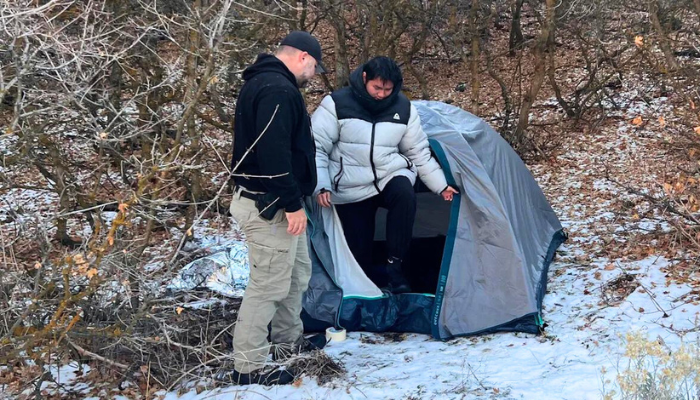
In a harrowing incident, 17-year-old Chinese exchange student Kai Zhuang was found alive but in distress in a tent outside Salt Lake City, Utah, following a cyber-kidnapping ordeal. Zhuang, who had been reported missing, was located in a snowy canyon, equipped only with a heat blanket, a sleeping bag, limited food and water, and several phones believed to be tools used in the cyber-kidnapping.
Authorities revealed that Zhuang had run away from home after cybercriminals convinced him that his family in China was in danger, leading to his family paying an $80,000 ransom. The FBI, along with the Chinese Embassy, is now assisting local investigators in tracking down the kidnappers.
Understanding Cyber Kidnapping: A Disturbing Trend
Cyber kidnapping, a form of digital extortion, involves deceiving individuals into believing their loved ones are in danger, followed by ransom demands. While Zhuang’s case has drawn international attention, the FBI has been aware of this crime for over 20 years.
Typically, cyber kidnappers trick victims into paying a ransom quickly, exploiting their fears and emotions. The scheme has evolved beyond its origins in Mexico and Southwest border states, now targeting U.S. residents nationwide. Scammers often make hundreds of calls, attempting to convince victims that a loved one is in danger.
The scam typically involves a phone call where the victim hears a recorded voice screaming for help. The victim, fearing for their loved one, may inadvertently reveal personal information. Scammers then claim to have the loved one and demand a ransom. While the scam doesn’t always succeed, the FBI warns that it works when people pick up the phone and have a child who is not at home.
Kai Zhuang’s Ordeal and the Aftermath
Zhuang’s cyber-kidnapping case highlights the vulnerability of foreign exchange students to such scams. The FBI notes a concerning trend where students, particularly from China, are targeted in cyber-kidnapping schemes.
In Zhuang’s case, he was found alone in a tent, and upon rescue, immediately requested a cheeseburger and to speak with his family. Authorities emphasize the importance of online vigilance, skepticism of unsolicited messages, verifying identities, and caution in sharing sensitive information online.
This incident serves as a stark reminder of the evolving nature of cybercrimes and the need for heightened awareness and preparedness against such threats. Authorities are urging individuals to stay informed, adjust privacy settings on social media, and educate family and friends about potential cyber threats. The Chinese embassy has issued warnings about the risks of ‘virtual kidnapping’ and other online frauds, particularly targeting foreign students in the U.S.






Be First to Comment